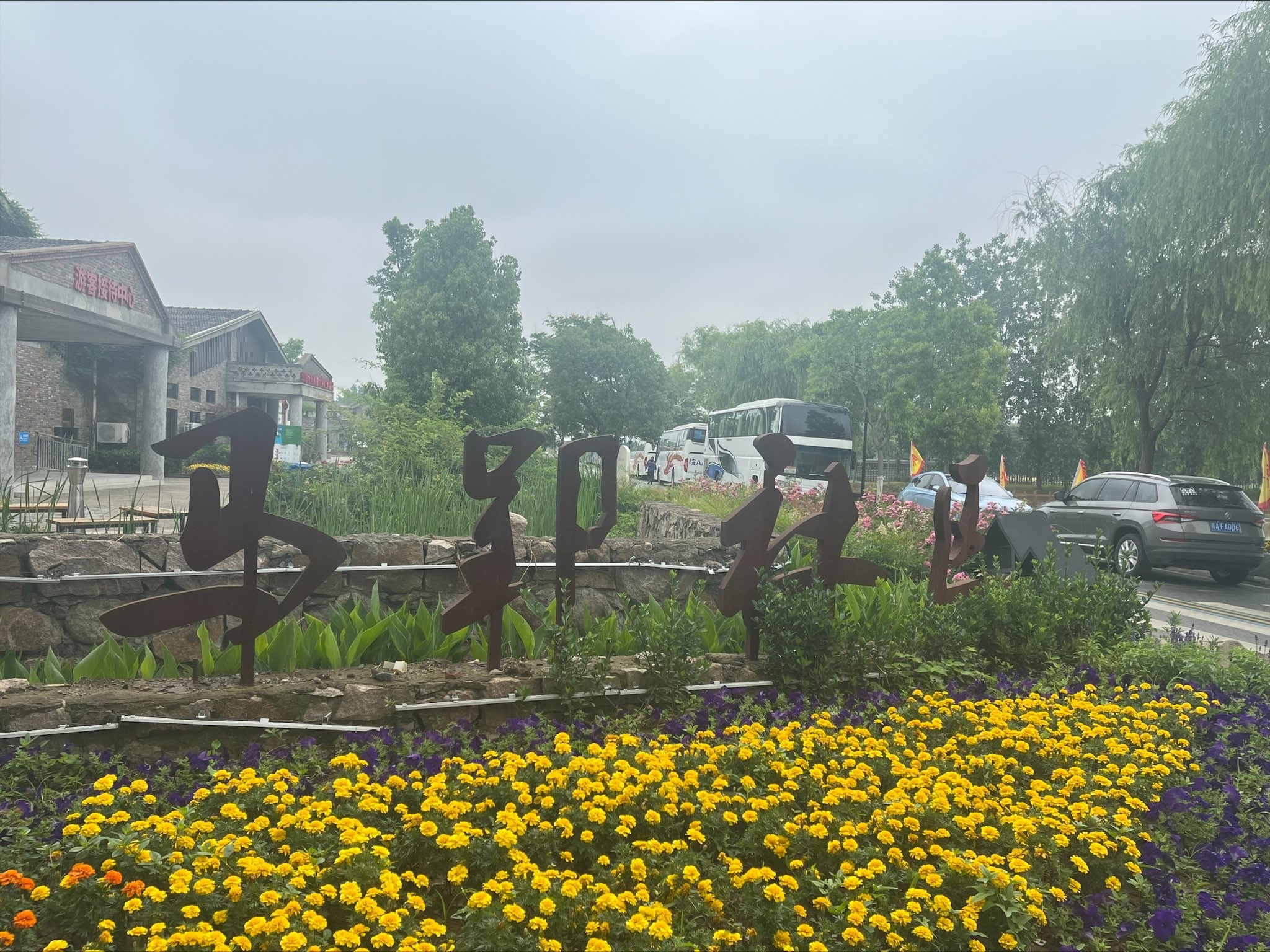
by Guest Contributor | Nov 17, 2023 | Opinion
China’s ongoing rural reforms are fostering practices akin to basic income, offering dividends to residents in the vast countryside. This development draws a parallel to the broader discussion of basic income within the context of China’s social security system and policies, such as the DiBao policy.
Since 2016, China has embarked on a reform of its rural collective property rights system. This reform, which involves a unified method of property verification by the central government, has enabled many villages across the country to establish clear ownership of assets. This foundational step has set the stage for the distribution of dividends.
The reform involves transforming collective operating assets into a shareholding cooperation system. The government mandates that villages and towns with these assets quantify them into shares for collective members, allowing for the distribution of earnings based on these shares. This approach leverages China’s collective economic base and equitably allocates previously undefined collective property to each member. Consequently, villagers now own shares and receive dividends, significantly enhancing their sense of financial gain.
However, these dividends differ from the traditional concept of basic income. They are conditional, require ownership in the collective, and do not necessarily follow a regular payment schedule. Despite these differences, the reforms have led to innovative institutional experiments across various pilot projects.
For instance, to include permanent residents and workers without shares in dividend distribution, some collectives have introduced new types of shares such as labor, land, and capital shares. This diversification enables broader participation, aligning more closely with the unconditional principle of basic income.
In terms of periodic distribution, some village groups, like Yongjiang Street in Ningbo, Zhejiang Province, have moved from lump-sum to regular payments. This approach, now increasingly adopted by local cooperatives, ensures more consistent financial support for members.
The impact of these reforms is tangible. In Beijing’s Haidian district, for example, villagers like Zhong Ercui have transitioned from traditional employment to becoming shareholders and employees of village collectives, receiving substantial dividends. This shift has significantly improved the economic conditions of thousands of residents in the region.
These reforms represent a significant step in China’s rural development, blending traditional collective economic practices with modern principles of equitable asset distribution and financial empowerment for rural residents.
Written by: Martin Han
Editor: Tyler Prochazka
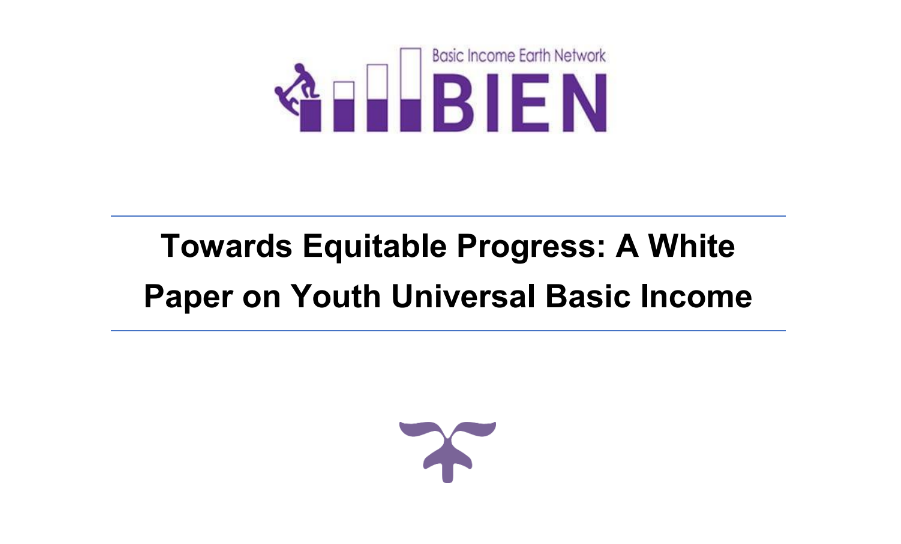
by Tyler Prochazka | Nov 15, 2023 | Opinion
In a recent study conducted examining attitudes among Chinese youth towards basic income, notable findings emerged, highlighting both a lack of comprehensive understanding and a positive disposition towards the concept.
The study, conducted through a questionnaire by BIEN student interns in China, focused on Chinese youth’s awareness and perceptions of basic income, a topic gaining relevance amidst economic challenges in China. With the country experiencing a slowdown in its rapid economic growth, phenomena such as “inward curling” and “lying flat” have emerged, indicative of the pressures faced by young people.
Basic income, a program offering financial support without conditions, is posited as a solution to alleviate these pressures, providing individuals with the dignity of survival and the power of choice.
Key findings from the survey reveal that while Chinese youth are enthusiastic and hold a positive attitude towards basic income, their understanding is limited. Nearly half of the respondents lacked a fundamental grasp of the concept and many held misconceptions about its universal nature. A significant portion believed the amount should vary based on location or personal income, contrary to the principle of universality inherent in basic income.
Despite these gaps in understanding, the overall response from Chinese youth was optimistic, reflecting a societal inclination towards fairness and the belief in basic income as a beneficial social program.
These insights suggest a need for further education and awareness-raising efforts, perhaps spearheaded by organizations like the Basic Income Earth Network (BIEN), to enhance understanding and support for basic income among China’s youth. Such efforts could play a crucial role in addressing the challenges faced by this demographic and in shaping the future of social welfare programs in China.
The full details and analysis of this study can be found in the original research found here.
Written by: Shengjia Qin & Rui Liang
Edited by: Tyler Prochazka
Mentor: Tim Lu
by Karl Widerquist | Sep 18, 2023 | Opinion, The Indepentarian
My main perspective is an argument with four premises:
1. It’s wrong for anyone to come between anyone else and the resources they need to survive in almost all circumstances.
2. Freedom is the power to say no.
3. A private property economy (or a socialist economy) without basic income interferes with people as they try to use resources to survive.
4. By doing 3, economic rules take people’s freedom away.
5. (Conclusion): private property or socialist economies require a basic income large enough to meet people’s basic needs.
I’ve written a lot justifying each of these premises, explaining & exploring what they mean, justifying the connection between these premises and the conclusion, replying to potential objections, making addition arguments for basic income, and exploring other conclusions that follow from my basic moral perspective, but–near as I can tell–this is the heart of my political theory.
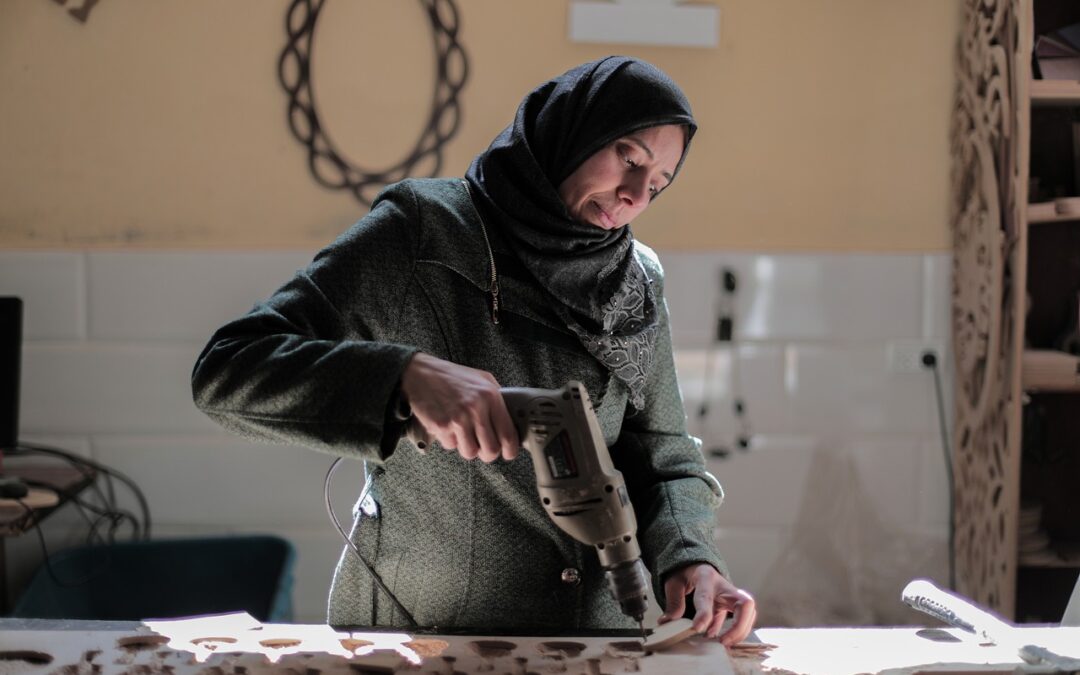
by Guest Contributor | May 30, 2023 | Opinion
While the proposition may appear daunting, the exploration of Universal Basic Income (UBI) for both Israelis and Palestinians is certainly worthwhile. Given the sustained conflicts in the region — from bombings in Gaza to raids in villages — and the current Israeli government, a unified UBI may seem implausible.
Nevertheless, a robust discussion on the potential benefits of a shared UBI program across troubled landscapes from the Mediterranean to the Jordan River is a necessity. Despite a history of failed negotiations and a prevailing sentiment of intractability, a UBI offers a novel approach to a perennial issue.
Scholars like Diana Bashur, renowned for her research on the influence of UBI in conflict-ridden areas, argue for its potential to improve social cohesion, bolster peacekeeping initiatives, strengthen social contracts, and enhance the resilience of communities. As demonstrated in her most recent work on post-war Syria, UBI might not be a panacea, but it could be a crucial step toward a more equitable society. This innovative peace-building measure, detailed extensively in Bashur’s work, ought to be considered seriously by policymakers seeking to address one of the oldest conflicts of mankind.
Imagine the application of UBI across Palestine and Israel — in Gaza, the West Bank, Jerusalem, and Haifa. This shared income would not discriminate between Palestinians and Israelis but rather assert a human right to live with dignity. Such a policy could foster a sense of shared belonging and equality, thus promoting mutual respect, regardless of religious, cultural, or ethnic differences. It would necessitate a cooperative approach from both Palestinians and Israelis, forging a partnership necessary to make UBI a success.
A harmonious social connection, coupled with non-discriminatory policies, could enhance security and decrease instances of violence. Moreover, acknowledging the human rights associated with UBI could demonstrate to even the most radical factions the shared humanity of all residents. From an economic perspective, investments into UBI could foster development and societal contribution, provided these efforts are accompanied by comprehensive security measures and advancements in healthcare and education.
Contrary to critics, such a program may not be prohibitively costly. With the successful implementation of UBI and accompanying reforms, reductions in military and security spending could be realized, thus paying for itself. The benefits of UBI in terms of lives preserved and cycles of violence broken are invaluable. Providing Palestinians, particularly those in Gaza and the occupied regions, with genuine opportunities could not only disrupt the status quo but also increase their societal contributions.
The current situation in the region, marked by loss, radicalization, and animosity, is untenable. Desires for change resonate on both sides — the Israeli protests and the widespread dissatisfaction among Palestinians are testaments to this. Therefore, despite its potential complexities, the implementation of a shared UBI could be both economically and politically feasible.
While this article merely introduces the concept of a unified UBI for Israel and Palestine, the technicalities of such a policy’s execution will be elaborated in forthcoming work.
It is not asserted here that a shared UBI would be a panacea for all the region’s problems, nor that its implementation would be straightforward. The argument presented is that a unified UBI could assure the right of all residents to a life of dignity, thus breaking the cycle of violence. Once this foundation is established, politicians can convene to debate boundaries and borders in an environment free of immediate pressure.
Written by: Ahmed Elbas
Image credit: Sawinery.net
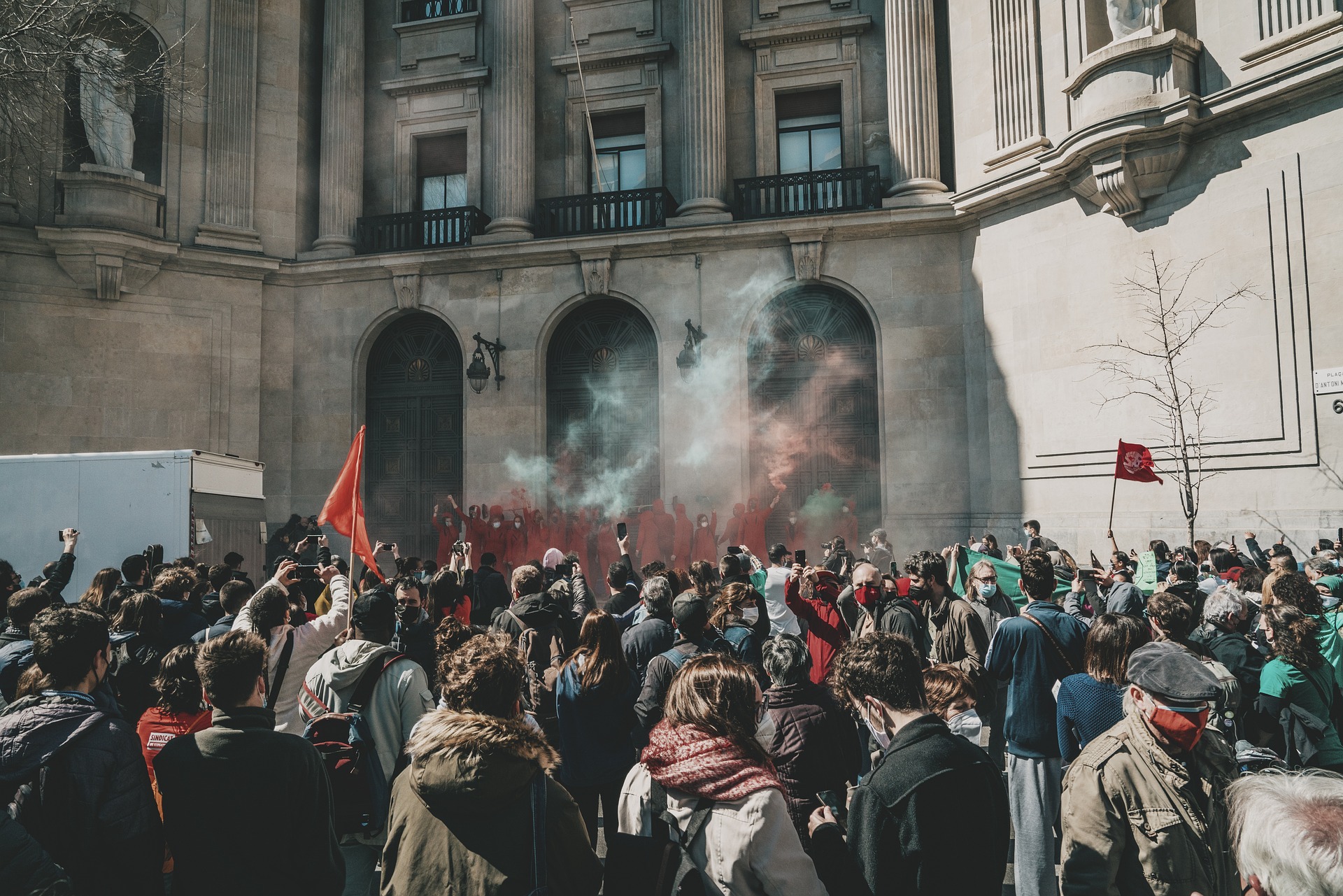
by Guest Contributor | Mar 30, 2023 | Opinion
This month Silicon Valley Bank defaulted causing the biggest bank failure since Lehman Brothers in 2008. The US government helped in finding a solution to stop the depositors from losing their money. The main reason for the bank’s failure was a bank run because of the bank’s inability to raise enough capital after miscalculating its investment strategy and not preparing enough for the US Federal Reserve’s interest rate hikes. Credit Suisse also faced a lot of trouble which caused the Swiss government to pressure UBS (Switzerland’s biggest bank) to acquire Credit Suisse. Those two incidents might seem irrelevant to a UBI, but such events show us the importance of UBI now.
The current economic and political scene is unstable. There are a lot of tensions between the main actors USA and China on the global stage as well as the conflict in Ukraine in combination with the aftermath of the Covid crisis which hurt the global economy and supply chains. Especially Russia’s attack and Ukraine and the resulting trade war with Europe caused a supply shock in the Energy sector which led to global inflation hence rising poverty and forcing the Fed to raise interest rates. Those hikes in interest rates, slowing economic growth, and an underperforming tech sector are causing a lot of economic instability and caused recent bank failures. But the question is how that is connected to UBI.
To understand why recent events, show the importance of a Universal Basic Income it is important to think about the potential worst-case scenario. The scenario that happened to SVB and Credit Suisse might repeat. Bank depositors might fear the repetition of such a bank failure in different banks and cause more bank runs as the whole banking sector is based on trust and there is no single bank that would survive a bank run without government support. There is also doubt in the current political climate how much possible bank bailouts are politically doable especially as most people will feel that the government supports the banking gamblers with their tax money while leaving the normal average people who didn’t do anything wrong alone when they struggle because of different reasons.
So, the first connection between UBI and the current banking problems is that the implementation of UBI would increase the population’s trust in the government as people will now feel seen and protected by society and will be less negative towards a potential bank bailout. Although possible bank bailouts would have to come with increased regulation to avoid giving the banks the feeling that they can do whatever they want, and the government will protect them while they screw the people’s money.
Another reason why the current economic situation makes UBI more necessary than before is that in a climate of increasing interest rates and declining trust in banks people will draw money from the economy, hence decreasing demand. Decreasing demand will lead to decreasing supply and will increase unemployment. A lot of economists like Larry Summers confess that and say it is a bitter pill to take to reduce inflation. Let’s assume that’s correct although I’m not sure that this is the best way out of the current situation that would mean that society is sacrificing jobs and hence the wealth of a lot of people to reduce inflation for the rest.
Such action is morally wrong, especially if people aren’t given a social net that protects them after losing their jobs to provide for themselves and their families. And we have to remember that the sole reason for them being unemployed will be that the FED and other Central Banks in other countries decided that higher unemployment is necessary to reduce inflation. This would make those people and their families suffer a lot financially and mentally and they might not find a way back to bring back structure in their life without support that relieves them of the stress of having just lost their livelihood. UBI would be the perfect measure to achieve that
The third argument which highlights the importance of UBI now has to do with the real economy and supply and demand. While a huge part of inflation is caused by the supply shocks from the Ukraine war it can’t be denied that it is also caused partly by a demand that might be higher than the current supply especially as supply chains haven’t recovered completely yet. And while many people might assume that this would be an argument against UBI as UBI would most probably increase demand we have to look at it from the other side too. Giving people a Universal Basic Income would mean giving people more flexibility and more control over their lives. People will choose the jobs they want to do instead of just taking any job. This dynamic might be crucial in overcoming the current crisis. It is expected that UBI will have a positive impact on entrepreneurship and small investments and such effects have been seen partly in previous pilot programs. Giving people a UBI would hence increase supply as smart entrepreneurs will see the gap between supply demand and work on filling that gap to make profits. This will mean a virtuous way out of inflation instead of a vicious way out of inflation. It would be also a way of directly supporting the victims instead of rewarding the gamblers
While a bank crisis is still avoidable, the current situation shows the importance of UBI on multiple fronts to help people in those difficult times. The government has tried to rescue the economy through trickle-down measures often and now it’s time to give people the chance to rescue the economy themselves by giving them a fair chance and promoting entrepreneurship by introducing a UBI and following a spirit of capitalism that left and right will be able to agree on.
Written by: Ahmed Elbas
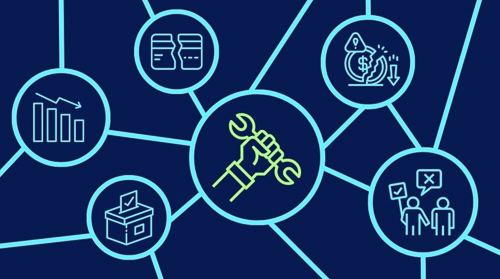
by Peter Knight | Jan 27, 2023 | Opinion
In a blog post entitled “Re-engineering our fragile economy and democracy”, Geoff Crocker argues that UBI “addresses ethical issues of income inequality, gender inequality, precarity, and security” and should be at least in part financed by “central bank monetary funding of government expenditure, or ‘debt-free sovereign money’, by which the central bank would directly credit the government account with money it had created.”
To read the blog post click here.






